|
7/13/2024 0 Comments The Vicissitudes of Life**--I used this phrase in my most recent newsletter, and one of my dearest friends wrote me a wonderful email with it as the subject line. Consider this a case of virtuous recycling. It has been nearly two months since I put something new up here. Sorry/not sorry, as the saying goes. So much has happened, and I have so little to say about it, and that's a strange combination. Confronted by this dynamic in the past, I've found it best to turtle up and wait until something worthwhile comes to mind. If you're seeking mindless blather, surely there's a high-frequency, low-content Substack site out there for you. And yet, enough has changed, and enough good intentions have been met with poor follow-through, that an accounting is in order. Let's do this scattershot style: I've moved. But that's not all. Elisa covered this beautifully in her own newsletter, so I'll neither say a lot more nor take issue with any of it. She now lives in New England, her other heart earth, and I still live in Montana, mine. I'm renting space in a lovely old rambling house in my favorite Billings neighborhood, pushing on with life and art. I have a beautiful office setup that is a joy to pile into each morning. My primary work, which I find interesting and fulfilling, continues apace (you can read a piece I wrote for PaymentsJournal here). Fretless and I take walks, sometimes alone, sometimes with my roommate and her dog. I tend to my dad. I have lunch with friends. It's a good life but also a different life, and I think Elisa would say the same thing. Fiction: At a standstill Once I decided to spring Northward Dreams loose from its intended publisher, spring became a blur as I pushed out a retitled, re-jacketed version of the book and embarked on an ambitious series of appearances. Those have largely subsided as summer has come on, and it will probably be fall before I rev up again. The paperback comes out in November, and that's a good opportunity to hit the road again. I had so much fun with the hardcover. What hasn't been fun—and I'm only being honest here—is going through the wringer of publishing, which can be a heartbreaking business. Writing is the best kind of joy—challenging, yes, but also a test of self, of the quality of ideas, of endurance. Publishing...Well, if I can't say something nice, and I can't, best not to say anything at all. It's not like my travails register as important in the larger scheme of things; hell, they're not even all that interesting to me given all the ways the world is on fire (literally). But if I'm going to write stories—and I am—I will have to resolve my attitude one way or another. Right now, I feel three impulses: 1. Forget publishing altogether. 2. Find another partner like the one I just dispatched, something I never wanted to do, and approach the altar again. 3. Do with every subsequent book exactly what I did with this one. Until my heart settles, I'll do nothing. Playwriting: Stay tuned After the final curtain closed on Straight On To Stardust last fall, I set about writing a new play and turned it around quickly. It's called The Garish Sun--know your Shakespeare—and I hope to have some interesting news to pass along soon. #deliberatetease At this juncture, I'm much more interested in and satisfied by working as a dramatist than I am in writing another novel. These feelings, of course, are subject to change (and always do), so I wouldn't read anything into that declaration. Just something I wouldn't have predicted, say, three years ago. Life, man. Let's have a conversation At the beginning of July, I joined at the speaker roster at Humanities Montana. I'm thrilled about this, as a longtime admirer of and sometimes participant with this organization that advances the humanities in Montana's public life. My program, titled Where Memory and Imagination Meet, draws on subjects that have long held fascination for me—the roles of memory as an ignition point and imagination as the building blocks of fiction—but expands the idea to take in such diverse topics as family, background, community, even citizenship. When we talk about our memories of the things that shaped us and marry those with imagining different ways of talking and connecting, great things can happen. My program, like all the others sponsored by Humanities Montana, is available to schools, libraries, civic groups, and other such gatherings. Information at the link above. If you have a group in Montana that would benefit from this conversation, let's talk! Yeah, but what about all the other stuff? Oh, you mean Craig Reads the Classics? The Saturday craft talks? General keeping in touch?
What can I say? I've been quiet lately. But I'll be back. That's a promise.
0 Comments
Onward we go into primary, secondary, and even tertiary characters from Northward Dreams who break away from the main narrative in a series of chapters that exist beyond the boundaries of the book's four established timelines. My role is not to play favorites with characters. My job, such as it is, lies in achieving empathy with all of them, listening to what they have to say, and, at least in the case of these chapters, talking to them. But if I were inclined to play favorites, Charley might well be my choice. You don't have to know a lot about me to know why. The most consequential male role model in my life is my stepfather. That my mother imagined something different for our lives and took us to him remains the single biggest gift I'll ever receive. That's well-covered ground. One could argue—I certainly would—that without that gift, this novel wouldn't have come to me. I would further surmise that the writing life itself might have been beyond my reach without that gift's presence, but that is an unknowable for which I am grateful. As I often say, though, there is memory (what actually happened, or what we perceive happened in our faulty hindsight), there is imagination (the fanciful stuff of world- and character-building), and there is what comes where the two meet. Charley Stidham won't tell you a thing about the life of the boy I was (and why should you be interested?). He'll tell you much about what it is to love, and to yearn, and to find gifts in the unexpected. As Charley's chapter dawns, he is arriving at the concluding paragraph of a life spent with words. Retirement. It's 2005, and he has seen a lot. There have been losses along the way, as there are for anyone with the audacity to live long enough to see them. He also has a whale of a surprise lurking at a public event he reluctantly attends: You're struck by something. You can still hear her when his mouth flies open, can see her inside his eyes and the small of his mouth, remember the way she would sometimes throw herself between the two of you in a fraught moment, until she learned to trust, and until you made your own way with him and all of you became a three-legged family and learned how to lope along together. And then... And then? You'll have to read the book. (Be sure to note in the comment box that you wish for a signed copy.) (Purchases through Bookshop.org can be dedicated to the independent bookstore of your choice, an excellent option for those who prefer online shopping.) Previously2/3/2024 0 Comments Texas.I moved to Texas when I was three years old. No one consulted me, and I wasn't happy about it, but Texas and I, we found our way. In time, I came to view that move as the most consequential event in my life. When I left Texas for the first time, I was fifteen years old, about to be a sophomore in high school, and I made a snap decision that I'd like to live with my father in rural New Mexico. He'd just been through a divorce, a particularly bad one, and I thought maybe he needed me. It didn't take. A lot of lessons in that, some that got under my skin immediately and others that steeped for many years before I understood. Among the latter group, probably one of the most important lessons: You can't fix for someone else what he must mend on his own. By the end of December, I was back home in North Texas, where I belonged, even if I still felt the fit was a little tight. When I left Texas for the second time, I was twenty-one, and I pointed my nose toward just about the farthest-away dot on my map. I went to Kenai, Alaska, for a sports editor's job. That didn't take, either--though some vital friendships did—and I came scurrying back not six months later. When I left Texas for the third time, I was twenty-three, and it was a job I left behind, a fairly miserable nine-month stint in Texarkana. Texas and I, we were living together uneasily amid irreconcilable differences. I worked at night on the Texas side, then hustled back across the line to Arkansas to set down my head. When I had a chance to leave Texas, off to Kentucky I went. When I left Texas for the fourth—and, as yet, final—time, I was thirty years old and adrift, in the midst of one of those Worst Years Ever that seem to surface every decade. I'd bounced from San Jose to San Antonio, and I'd found Texas to be what it always had been: inscrutable, beautiful, alluring, interesting, and not for me. Back to San Jose I went, but first with a three-month misdirection in Olympia, Washington, and it's like I said: bad year. This is all to say that I've left Texas a lot. But Texas has never left me. The math doesn't lie. Texas had me for most of eighteen years, then nine months, then eight months. Nineteen and a half years, let's call it. Add in various visits over the years—can you really leave a place that harbors your parents and your siblings and your formative memories and some of the best friends you've ever had?—and the total still falls short of twenty years, but let's round it up. Fine. Twenty years of Texas. I'm fifty-three, and on the cusp of the next number up. The scales tip heavily toward everywhere else. Here before too long, Montana will sink its years deeper into me than Texas ever did. It already has more of my heart, more influence on my creativity, a bigger share of my identity. Still, Texas abides. Still, Texas claims me. Still, I claim Texas. Those holds are coming up through my work first, which means they're coming up in my memories. My latest work is drenched in Texas, even if most of it unfolds farther north. There was no way to imagine Nathan Ray, the central character of the ensemble, without first cozying up to the Texas I knew as a boy, then conjuring a backstory where the Texas he knows is a backdrop of pain and disillusionment and gifts he cannot yet see. It's in the next book—the one with a title in flux, the one that may emerge in 2025, or maybe '26—that Texas takes a star turn, a place both abandoned and returned to. Here's a snippet: Texas was gone, falling behind us a mile a minute, and I was relieved and scared all at the same time. You leave Texas little by little and then all at once, yes, but Texas is also a magnet—a big, southerly magnet pulling at everyone else in the country with myths and manufactured romance and jobs and cheap living and low taxes. You can get away, but can you ever really leave? My answer, beyond the bounds of fiction? It's complicated. You can leave, sure. But you come back. The only thing is, I've never made a return stick. But it's early yet. I'm still upright and breathing. In the foreseeable term, of course, I'm not going anywhere. I live in Montana, I love living in Montana, and the father with whom I couldn't live in 1985 really does need me now. He lives in Montana. As long as he draws breath, and probably longer, here I'll be.
But I can't quit Texas, and unlike the answer I'd have given you twenty years ago, I don't want to. It's in my head and my heart and my memories, and the last of those is the most essential ingredient in doing this thing I do. That, I believe, is why Texas seems so insistent these days, like a song that I can't get out of my ears. It's having its say in my work, and I'm making room for it there. Perhaps, in some future I cannot yet see, I'll make other accommodations for it, too. Occasionally, either not knowing my history or not caring, a friend or acquaintance will say something cutting about the place that shaped my boyhood, and thus my life. And I'll cringe, because the cuts are easy enough to administer when Texas serves up such ridiculous stereotypes, such a bloody history, such casually cruel politics. On a day when I can find patience and indulgence for a friend's carelessness, I will say, OK, yes, but Texas is also a vast and beautiful place, full of beautiful people who contain multitudes. Texas isn't made for anyone's tidy little box. It's destined to spill out from whatever attempts to contain it. In short, it cannot be seen in simplicities when its complexities abound. 11/4/2023 0 Comments Saturday Morning Craft Talk......if you'll indulge me. Tonight, Yellowstone Repertory Theatre wraps up its nine-performance run of Straight On To Stardust, my first full-length play. To say it's been a privilege would be a damnable understatement. To say it's been fun would be to undersell the word. To say I'm going to miss it... Well. Yeah, I will. I hope this isn't the end, but if it is, I couldn't have enjoyed nine days and nights any more than I have, and I certainly couldn't have seen my play taken on a maiden voyage by any group more loving and talented than the YRT ensemble and its intrepid leader, Craig Huisenga. I'm a writer, so I'm not terribly unusual in that I want nothing more than to undertake the next writing project. Another play, perhaps. Maybe a novel. A short story. I don't know. The idea will tap me on the shoulder soon enough, and I'll be in my seat, doing what I do. In the meantime, I'd like to see where else Stardust might alight. Have some ideas? Talk to me. Want to download the media kit and read an excerpt, see some photos, read some reviews? Have at it. But about that craft talk... Occasionally, I'll read a book review, or even the book itself, and the reviewer and/or I will be awed by the incredible sweep of a story, how it captures an era or a movement or a moment in our lives, and I'll have that inevitable feeling of being unworthy: How, I'll wonder, can I call myself a writer of fiction when I lack the imagination to conjure a story that so richly conveys detail and so expertly takes in such abundant themes? This is doubt, by the way, standing on the shoulder and whispering poison into the ear. The problem: Those in the throes of such doubt often lack the ability to stand back and gain perspective in the moments when they most need it. So we ask ourselves why we should bother when someone else, or many someones else, do it so well. In my calmer, less doubt-ridden moments, I'm able to center myself in this truth: I am not, as yet, a writer of sweep. I am a writer of the interior, in ceaseless exploration of fear and sloth and errant motivation and mistrust and love and betrayal and every possible in-between that makes us maddeningly human. I write from the inside out to better understand not just others but myself. Maybe, ultimately, especially myself. On that subject, I am taking a lifelong postgraduate course from which there is no bestowing of a diploma. There is only the next lesson. I've been thinking of these things a lot in these past few weeks of repeatedly watching Straight On To Stardust play out in front of me. This is a story of family fractures and of interior lives that are explosive in combination: a son who misses his mother and stretches out, flailing, for his father; a daughter who searches for a way in with her inscrutable dad; an ex-wife who still loves the man who denies her intimacy; a friendship held, frozen, in time and the cosmos.
When you reside in the interior and work from there, you discover, eventually, that most of the scary things behind the door you keep trying to bust down have their roots in childhood. Anybody who's been in therapy knows this; it's why counselors start there as they help their patients tunnel into the now. Generational trauma flows from child to child, often through the clearinghouse of adulthood. When we don't handle our shit, we roll it downhill to the next person. Someone, eventually, tries to pay the overdue bill. It's a hell of an inefficient way of living, with incalculable damage inflicted in the main and on the margins, but here we are. Again and again and again. It doesn't take much imagination to consider how these interior damages have great reach beyond our own lives. How might the life of one particularly public narcissist have gone differently had he been hugged more often by his father or been told that he was loved? Or let me take this to an intensely personal place: Why did I equate love with eventual abandonment throughout my 20s and 30s and 40s? (It's rhetorical, this question. I know the answer. I know it now. I learned it the hard, necessary way in my mid-40s.) It's a hell of a thing, this trauma. It's given to us, in most cases. No instructions, no way of opting out, here it is, and it's ours to carry. It often happens when we're young, but there comes a time when that's no longer an acceptable excuse for our clinging to it. Yeah, we were just kids, and yeah, it should have gone another way, but it didn't, and now the onus is on us to not inflict it on someone else. You up for that, the responsibility of that? Some of the most wrenching, yet illuminating, stretches of my life have come while I strained to get to yes when faced with that question. It's why I write. To hold these things up to the light. To understand them. Sweep? I'm not thinking about sweep. I'm thinking about getting through this life. How do I do that? How do the characters I'm living with do that? Can I listen closely enough, feel acutely enough, be compassionate enough on their journey? Can they find their way through? Can I help as I walk with them? I want to. I need to. 1/15/2023 0 Comments Memory + Imagination = Fiction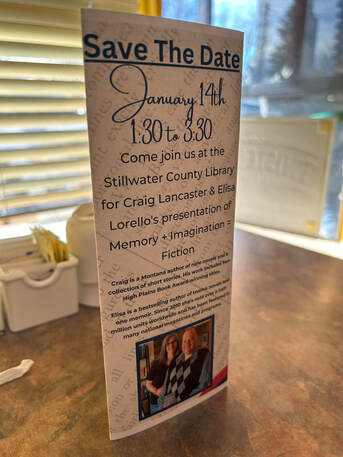 Elisa and I took our new presentation, title above, out for its first spin Saturday at the Stillwater County Library in Columbus, Montana. (Cool side note: The centerpiece pictured here was on our table at Grand Fortune, a Chinese restaurant in Columbus that we hit before the event. I can definitely say that's a career first for me. For Elisa, too.) To say that we were thrilled with the response to our program would be, perhaps, to diminish the meaning of "thrilled." We had a group of about 20 people who dug in with us, asked excellent questions and provided terrific insights, and even gamely took on a writing exercise at the end. The idea was to take The Word—the go-to warmup exercise I've written about from time to time—and apply the principles of memory harvesting to create the short fictional work that resulted. So we had the folks give us a passel of words, then we ran a random-number generator to choose one that would apply to everyone's work. That word: hayloft. Elisa and I wrote along with everyone else. I had the advantage of my laptop, so I was able to write about 630 words in the 20 minutes of the exercise. As I told everybody afterward, if the current manuscript took on words that quickly, I'd be done with it back in November. Of 2020. What follows is my effort ... HayloftMom told me I would be sorry if I didn’t go, if I didn’t see where my grandfather, her father, had grown up. I was dubious, to say the least. I liked our hotel, I liked the pool—the pool was about the only thing that made southwestern Minnesota in summer bearable to me—and I wanted to stay. She insisted that I go. I was nine. Guess who won that debate? The whole way over, our 1978 Chevy Citation baking on the blacktop, Mom told me that she’d only been here once, long, long ago, when she was a little girl, after grandpa had come back from the war in Italy. “It was like a magical place, Jeff,” she said, and I sat there thinking she should see some better magic. “Tractors. Gardens. Corn you can eat off the stalk. A hayloft, Jeff, with a tire swing. You can launch yourself clear into the rafters and come down in a soft landing.” I harumphed. Something good was on TV, and I was missing it. We made a little turn off the two-laner and went down this rutted two-track, between two fields of corn headed for silage. I wasn’t going to be eating anything off these stalks, I figured, but seeing as how I was a civilized boy, I didn’t need anything that didn’t come in a can anyway. But maybe I could slop the hogs and shovel out the chicken coop. Boy, howdy. At the end of the lane stood my grandfather, all unfolded six-foot-six of him, encased like a sausage in denim overalls and a gingham workshirt. I’d never seen him looking like that before; the guy was a navigator for Alaska Airlines, not a goat roper, but I guess it was the same nostalgia trip for him that it was for Mom, making his way to the place where he’d grown up. Beside him, another couple—that’d be great Uncle Leo and great Aunt Darlaine, I supposed, the proprietors now of the farm. I’d never met them, I didn’t think. Mom started crying once they came into view, and I shrank down in the seat, both because they were all waving stupidly at us and because Mom cried a lot that summer, and it had become clear I couldn’t do much other than let her hug my neck. We got out. Grandpa came at us, and Mom collapsed into him, crying at a stronger pitch. He folded her in like the bear of a man he was, and he reached out with a mitt and pulled me in, too. “We’ve been waiting,” he said. “I know,” Mom said, her voice muffled by his overalls. “I don’t think I remembered how far out it is.” Leo and Darlaine, having waited their turn, moved in, too. More hugs. More crying. Pinched cheeks on me, Darlaine’s doing, as she called me a beautiful boy. Torture. Sheer torture. “Jeff,” Grandpa said, holding me at an arm’s length. “What do you have to say for yourself?” “Nothing,” I said. “Well, you’ll need to do better than that.” “Mom says you’ve got corn here I can eat,” I said. “That we do.” “Where?” I asked. “Soon,” he said. “I’ll show you. What do you think of the place?” I cast a look around, for his benefit. All of them—Mom, Grandpa, Leo, Darlaine—had a look like something major would be hinging on my answer. “I’ve seen better,” I said. And then, deflation, right down the line. Grandpa gripped me by the neck, a gesture that looked loving enough but had a little pinch to it. I’d been mouthy. I knew I’d best not be mouthy again. “Well,” he said, “maybe that’s so. But someday you’ll lose a few things, and you’ll know better.” Because part of the exercise involves sharing both the memory and how the imagination was applied to it, here's closing the circle:
The memory: Hayloft was a word that led just about everybody to a farm, in one way or another. A word like that spawns more similarities, even in a large group, than a word like, say, forgettable would. I thought of the farm my grandfather grew up on, which I saw only once, when I was a little boy. I grabbed the name of his younger brother, Leo, and Leo's wife, Darlaine, because it was easier than making up new names. But Leo and Darlaine weren't the proprietors of the farm back then. (That would have been Forrest, another brother, and his wife, Margaret.) Everything else is imagination ... The imagination: Jeff's grandmother is conspicuous by her absence. My grandmother lived until 2017. Jeff's father isn't in the picture. Mine, both of mine, definitely were and are. I can't say I wasn't mouthy, or even that I don't remain mouthy, but I wasn't mouthy like that. I don't remember a hotel. Pretty sure we slept in campground barracks along with the rest of the out-of-town relatives that summer. Soon after that 1979 family reunion, we started losing people, which I'm sure is why it remains so firmly lodged in my mind. And so it goes. Really cool, unexpected, interesting things happen when I do The Word. It's why I love it so. 8/14/2022 0 Comments Small. Appreciative.
Life has some funny cycles. As I write this, I'm just a handful of hours home from a couple of days in Great Falls, that visit coming on the heels of another Great Falls trip the previous week. Before that, I think the last time I was in Great Falls other than just passing through was ... 2010? 2011? A long time ago. I hope this means I'll be going back sooner rather than later. I like that town.
I was there to take part in a panel discussion of Montana authors, sponsored by the Great Falls Public Library as part of the Big River Ruckus festival. It was a blistering-hot morning, and my planet-sized melon sizzled. As is often the case for literary events, we didn't have a big crowd (I believe the applicable adjectives are "small" and "appreciative"), but we had good times in abundance. I joined poet Dave Caserio (a Billings denizen, like me) and writer Kristen Inbody, and we had a rollicking good time talking about writing in the West, ideas, how place figures into our writing, and much more.
Whenever I do an event, I'm put in mind of a line from a Pernice Brothers song: It doesn't matter if the crowd is thin / we sing to six the way we sing to ten ...
It's a funny line, of course, but the sentiment is dead-on. I've seen everything there is to see at readings, book signings, and the like: small gatherings, no gatherings, full houses, whatever. Whatever you get, you deliver as best you can to whoever was kind enough to show up. It's a charming business in that way. Every hand that's there to shake—or the only hand that's there to shake—is another chance to make a connection. And connections are everything. One person showed up? Great! Take that person out for dinner or a drink. The whole town showed up? Fantastic! Now you've got a party.
Love is love, and we love the stage ...
Before heading home Sunday, I drove out northwest of Great Falls to see the dairy farm my father grew up on. It was only the third time I've been there, and the second was just a drive-by, but I remembered the route just fine. I drove down the long driveway to where the house is, but nobody came out, and I wasn't about to go knocking on doors, so I took a quick look, then slipped out of there quietly.
Here's a nice shot from atop the bench, about a mile and a half from the farmhouse. Sorry for the telephone pole bisecting Square Butte.
When I talk about writing and where it comes from, as I did during our discussion Saturday, I'm apt to talk about how we are born with stories. We're not blank slates. Going to a place that was formative for my father (in mostly devastating ways, unfortunately) is a good demonstration of what I mean. It allows me to put eyes on his life, to process it, and to make sense of my own. Because of the way his life was shaped by his early experiences, he had a story to transfer to me, one that I would start to carry when I came into the world, along with the one I would live out in my own days. The same is true, of course, with my mother, and her parents, and his parents, and their parents before them, and on and on. The stories are inside us, already coded. We draw them out, interpret them, weave them with imagination and memory (in the case of fiction), give them purpose. It's a beautiful thing. Even when the underlying material is made up of mostly terrible things.
"Before you climb the mountain, first the foothills must appear."
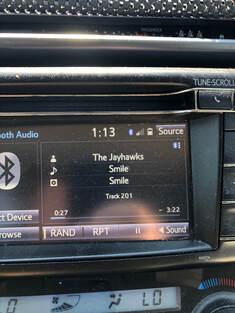
It was a long, hot, empty drive home for Fretless and me. He mostly slept. I mostly sang along with the random shuffle of iTunes, something I can get away with when I'm alone. (I certainly wouldn't subject any human to my singing voice.)
On the final stretch home, I received a particular delight when iTunes served up one of my favorite songs but also one that doesn't often swim to the top of the heap. I suppose most songs remind us of something, someone or some point in time. Certainly, this one does that for me. There's a tinge of melancholy, though, because it's a reminder of a friendship I miss. It's been many years since it went by the wayside, and I've come to embrace something I was told a long time ago when I was seeing a counselor while in the midst of divorce: Some friendships are like cab rides. They have a beginning and an end. Indeed, they do.
Anyway, it was nice to hear the song at that moment, with my head where it was (reeling in other memories), to recall good times with someone who was a good friend, and to put out a silent wish: I hope the good life has found you where you are.
It certainly has found me. Coming home—to Billings, to Elisa, to Spatz the cat—is the best arrival I've ever known. It makes the leaving worthwhile. 8/5/2022 0 Comments Great Falls, AdequatelyCome October 1st, it will be six years of marriage and about seven and a half years of togetherness for Elisa and me, and let me tell you: That's long enough that most of the stories have been told, mine to her and hers to me. We scooted away for an overnight trip to Great Falls this week. I had an event at Cassiopeia Books and an overdue acquaintance to make with owner Millie Whalen, and it was nice that Elisa and I could get away, just the two of us, for a little while. On the trip home, one of those untold stories spilled out ... Great Falls is where a lot of my family lore resides—my father, born in Conrad, grew up around there, and he and my mother married there long before I showed up—but it's not somewhere I often go. In nearly sixteen years of living in Montana, I've been only a handful of times, far less often than I've been to Missoula or Bozeman or Livingston or Helena or, heck, Miles City or Glendive. But in 1992, I almost moved there. That's the story that had gone untold. Now, when I say "almost," some qualifiers are in order. I wanted to move to Great Falls (or thought I did). The sports editor at the Great Falls Tribune at the time, a wonderful guy named George Geise, wanted me to move to Great Falls. The man who could make it happen, a senior-level editor at the paper I'd just as soon not name (but whose name I've never forgotten), made it clear I wouldn't be welcome there. The reason: I didn't have a college degree, and he didn't think I was qualified for the job without one. (I still don't have a sheepskin, but that's another story.) Now, let's be clear: This guy was flat-out wrong. I could handle the job I'd applied for (sports copy editor/page designer). I was handling it at a paper of similar size in Texarkana, Texas, and I would go on to handle it at progressively larger, more prestigious papers. I would, in time, become well-decorated and well-traveled. I would lead workshops in editing. I would direct a large sports department at a large West Coast newspaper. I would ... but I hadn't yet. Not in 1992. Then, I was a 22-year-old kid with some talent and, in fairness to the Executive Who Shall Not Be Named, some cockiness that was a bit out of proportion to the skills I'd honed to that point. And that imbalance, I think, would have been a perfectly valid reason for him to say, "Sorry, kid, not going to happen here." But that's not what he said. He fixated on the degree I didn't have. I didn't get the job. George Geise was disappointed. So was I. There was personal history to unearth in Great Falls, and I was already well in love with Montana, an affair that goes on and on. I thought I was missing out on something important. So, stuck for a while longer at a job in Texarkana I no longer wanted*, I made a resolution, one that has stuck for 30 years: No way was a guy like that going to be right about me. I made sure of it. *—In Texarkana, the single most appalling moment of my journalism career, now more than three decades old, happened. When Magic Johnson rejoined the NBA after his HIV-positive diagnosis, I played the story big on the front page of the sports section (as did just about every paper in America). The next day, a copy of the page was in my mailbox, the story circled in red pen, along with a note from an executive at the paper: "Magic Johnson is an immoral HIV carrier, and none of our readers care about him." I should have quit on the spot. It's to my eternal chagrin that I did not. I did, however, start looking for a new job immediately. 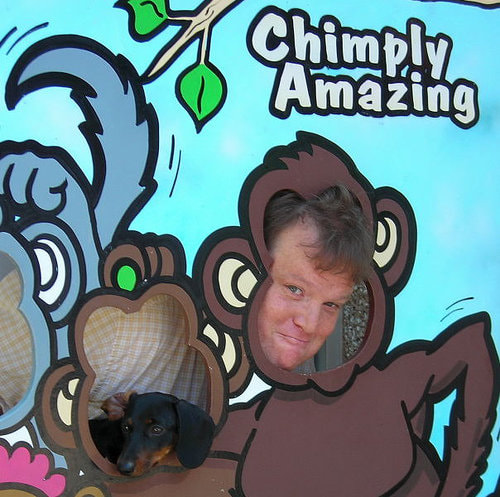 Me with Zula (RIP), clowning around in Great Falls in 2007. Me with Zula (RIP), clowning around in Great Falls in 2007. Now ... Did I miss out on something by not finding my way to Great Falls in 1992? Well, yes. Something. But not everything, and not the most important things. I didn't make it to Montana and stick here until 2006, when I was 36. Within a couple of years, I was writing books, something I'd have not even attempted 14 years earlier. By the time I got here, I'd already dug into the personal history that was faintly compelling me in my early 20s. I'd found my grandfather and closed an open question. I'd begun to talk to my dad about his life and his memories, so I could find ways to get closer to him. In subsequent years, I'd help, in whatever meager way I could, to put ghosts to rest. The headstone pictured below on my grandmother's grave (in Great Falls) went in just 15-plus years ago, well after her death, as my father began to forgive her for the ways she'd wronged him, a thawing of feelings that came about because he and I started digging in the hard soil of his past. On some level, I'm just guessing, but I doubt any of that would have happened the way it did if I'd shown up in Great Falls at the callow age of 22 and burned through that job the way I burned through others during that time in my life. Montana might have been over and done with before I could have gotten to know her. I might have missed the best years I've enjoyed here. The very best years of my life, as it turns out.
So far, anyway. 4/18/2022 0 Comments Who I Am. What I Do.**—If I'm doing it right, there's both overlap and freestanding territory. For years and years, I didn't do it right. Facebook, I've noted before, isn't good for much, but it's damn near essential for a few things: easy keeping up with far-flung friends and relatives, recipes, irritating others with your daily Wordle grid, cat memes, birthday greetings (the most heartwarming day of the year, every year), etc. Increasingly, I'm finding value in the stored-up daily memories, especially the things I don't remember writing or don't remember the impetus for writing. Today (April 18) served up this kick to the hippocampus: My newspaper career started in October 1988, when Jim Fuquay gave me a job as a part-time correspondent at the Fort Worth Star-Telegram. It ended in August 2013, when I left my job as night city editor at the Billings Gazette. In between, I worked at nine newspapers in six states. Some jobs I took for the adventure (Peninsula Clarion, Kenai, Alaska, age 21). Some I took for money (Dayton Daily News, 1994). I almost always regretted those, by the way. Some I took for escape (Anchorage Daily News, 1995, to get away from Dayton). Some I took because I knew they'd make me better (San Jose Mercury News, 1998). One I took to correct a mistake (San Jose Mercury News, 2000, after bouncing to both San Antonio and Olympia, Wash., earlier that year). Twice I accepted jobs and then backed out before I was due to report (particular apologies to the Lewiston (Maine) Sun Journal). I took different jobs for different reasons. Sometimes those reasons panned out and sometimes they didn't. But most of the time, what I was really looking for in a new job was some new version of me. I never found that. Not once. It feels good to finally admit this. Let's unpack this, shall we? Elisa and I were talking about this the other day, having reached an age at which there's plenty in the rearview to examine and second-guess and (we hope) plenty of road ahead to consider other pathways: If we had it to do again, would we make different career choices? What might we have done instead? Because those ponderings inevitably run up against the butterfly effect, we ended up in a predictable place: Nope. We're good. But it remains an interesting thought experiment, if only for the clarity you find about the choices you did make. I ran toward print journalism—and stayed there a good long time—because it made good use of my particular talents and because it was, in my narrow sense of the word, a daily adventure. Within the strictures of daily newspaper production—you have to gather the stories and stats and pictures, you have to edit the material, you have to design the pages upon which it all rests—were wide variables in what you dealt with daily. The news was always different. The pages began, every day, as blank canvases. I loved that. What I traded for that was significant, though: Friends in other lines of work made more money, enjoyed greater security and stability, had evenings and weekends free, etc. These are not insignificant things. Who I was and my stance with regard to work, especially in my 20s, are so entirely removed from who I am now that I have to strain to remember that guy. I know that his entire definition of self was wound up in being a journalist, that he went to bed thinking about it and woke up each morning with it on his mind, that he bounced up to the world with that shingle around his neck. I lived to work, and I sought out any chance I had to work extra hours, to get plum assignments, to make myself as close to indispensable as I could (an illusion, of course, but one I willingly bought in those years). It's what I didn't do that taunts me now. I didn't fall in love in those years; how could I, when the aggrandizement of Craig the Journalist was front and center among my priorities? I get at that idea in the Facebook memory above: In all my wandering around, looking for some new version of me, I carried my old self into each new situation (wherever you go, there you are). I didn't learn to play the guitar or take a judo class or write a novel. Until, you know, I wrote a novel. When I was trying to emerge from brokenness and impending divorce in 2014-15, I spent a lot of time with a counselor (highly recommended) and with my nose in reading material aimed at my mental/emotional state (e.g., King Warrior Magician Lover) and my soul (The Rag and Bone Shop of the Heart). I wanted to understand what was happening to me, why it had happened, the parts for which I had responsibility (many) and the parts I had to let go (also many). I also read a lot of shorter pieces, some with resonance and some without. Two that stick out, years after the fact, were written by Mark Manson. I recommend these highly, whatever your situation: Fuck Yes or No: "Since you’re now freeing up so much time and energy from people you’re not that into, and people who are not that into you, you now find yourself perpetually in interactions where people’s intentions are clear and enthusiastic. Sweet!" The Guide to Strong Relationship Boundaries: "People with poor boundaries typically come in two flavors: those who take too much responsibility for the emotions/actions of others and those who expect others to take too much responsibility for their own emotions/actions." I hear what you're saying. Craig, you're saying, this is great, but you're talking about personal relationships now, and you were talking about work, and I'm confused. No, no, I'm still talking about work. This is the point. In the extreme emotional duress of a divorce—a traumatic thing I do not recommend, unless, of course, it's the thing that will skirt an even bigger trauma—and with the help of a well-trained, compassionate human and the collected wisdom of learned thinkers, I began to unlock some problems I'd dragged into every area of my life: my interpersonal relationships and my relationship with work. This hard process of dredging up changed me. Better personal boundaries also meant better work boundaries. I'm no less good at what I do—in fact, I'd argue that I'm much, much better than I've ever been—but no longer am I defined entirely by a magazine spread that I've designed, or a report I've edited, or a chapter I've written. What I do is also who I am, but it's not the entirety of the picture. It was written mostly as a joke, but like any good joke, there's truth inside it. In the sidebar on this blog, I define myself this way: Craig Lancaster is an author, an editor, a publication designer, a layabout, a largely frustrated Dallas Mavericks fan, an eater of breakfast, a dreamer of dreams, a husband, a brother, a son, an uncle. And most of all, a man who values a T-shirt. I can live with that. 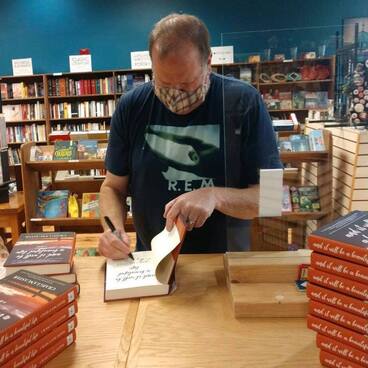 Signing copies at This House of Books in Billings. Signing copies at This House of Books in Billings. In some significant ways, what's happening now in the American workforce—this thing they're calling the Great Resignation—is a manifestation of an assertion of boundaries. We've been through a lot: social tumult, a deadly pandemic, a rebalancing and cross-pollination of work lives and home lives. People are reconsidering what they value, how they want to toil, whom they want to toil for, and what price they're willing to accept for those vast swaths of their finite lives. Good. It's healthy in the long run, even if it's upsetting to the status quo in the shorter term. The last time I moved—packed up my life and my car and my expectations--for a job was more than 20 years ago, when I left Olympia, Wash., to return to San Jose, a place I never should have left in the first place. I can't imagine doing it again, although one of the benefits of growing older is learning that one really shouldn't say never. My point is that although I plan to strap on the work boots for a good long time—I like to work, a fact that was clear even 30 years ago, if badly applied--where I am and who I am and how I'll share those parts of me need more than just a job. I need a multidimensional identity, too, and at last I have one. That's what I was missing in all those moves cited in the Facebook post above. The last time I recast how I define myself professionally occurred when I wrote and published that first book and I figured I could finally call myself a novelist instead of just a guy who wished he had one inside him that he could extract. That was nice, too, but it's not everything. Without the laying about and eating breakfast and doting on my nieces and nephews and being a son and a brother and worrying about the Dallas Mavericks and spinning through this life with my wife, in fact, it wouldn't mean much at all. 3/30/2022 0 Comments EmergingLike many people, I've come to loathe Facebook in as many ways as I find it an indispensable means of keeping up with close friends and loved ones. Perhaps it's the indispensability that I loathe most. I also post things there deliberately, knowing that I'll be shown them again, year after year, so I can remember certain days with some degree of precision. Two years ago, March 30 was just such an occasion. On this day in 2020, the moving trucks showed up at our house in Boothbay, Maine, and whisked away our stuff. By then, it wasn't even our house anymore; we had closed on its sale a few days earlier and were just extremely short-term renters. We loved that house. We liked Maine. But neither love nor like was enough to hold us. That's old ground that needn't be gone over again. What's hard to remember now, even two short years later, is just how frightening the whole thing was. The world had closed up. We had moving guys tromping through the house, and we—Elisa, me, the dog, the cat, my dad, his dog—kept our distance and hoped they weren't sick. Hoped we weren't sick. Wouldn't be entirely sure how to know if we were or they were. There was a lot of taking things on faith. There was a lot of handwashing and surface disinfecting. There was a lot of uncertainty about what awaited us on the road. That first night, we stayed at a hotel in Portland. I, wearing rubber gloves and a paper mask, fetched dinner for everyone and brought it back to the two rooms (guys and dogs in one, woman and cat in another). Same drill for the subsequent nights, in Buffalo and Chicago and Minneapolis and Bismarck. We limited our points of contact. I did all the gassing up for the two cars, which were similarly subdivided with occupants. I wrangled all the meals, meeting Doordash and Uber Eats in hotel lobbies. In the East, where the pandemic initially hit hardest, we stared in wonder at empty turnpikes and rest stops. The farther west we drove, the more lax people seemed about what was happening. In Janesville, Wisconsin, I turned on my heel and left a store after seeing scores of unmasked people there. In North Dakota, a convenience store clerk poked fun at my mask. In Ohio, I asked a guy to move down a urinal, and he reacted with anger: "I'm not sick." "Fine," I said, "but maybe I am." When we got to Billings, it was more of the same. We were diligent, about our hands and our faces and our surfaces. We were scared. We sequestered ourselves away for two weeks and hoped we wouldn't get sick. The unknown was a menace. We weren't alone in feeling that. It's two years hence. We're just back from a two-week vacation. We saw loved ones. We hugged old friends. We gathered with thousands in a sports arena in downtown Dallas. We crowded into a banquet hall and said goodbye to a friend. The pandemic remains with us, of course, but it's different now, too. We're vaxxed and boosted, and soon to be boosted again. In recent weeks, we've begun stepping out again. Our first sitdown meal in a restaurant happened a few weeks before we traveled to Texas. Our first evenings out to see plays (masked), too. We carry the vax cards and the masks, in case they're needed. I imagine I'll wear one forevermore in airplanes and on trains and in crowded supermarkets. I'm cool with that. It's not a burden. We've been through two flu seasons now without the flu, a first for either of us. Credit the masks. Our doctor surely does. And yet, with the specter of omicron and whatever new variants might emerge, we worry about a scratchy throat or some mild congestion. Just the other day, we broke out a test for Elisa, who was feeling a little poorly. Negative. We've been lucky. No doubt about that. But we've also been diligent. We'll try to stay so, even as we dip further into what used to be normal life. The point of all this? There is no point, really. Gratitude. Caution.
We've had a hard two years, all of us. We've lost people we shouldn't have lost. We've grown isolated and angry. We've missed things we shouldn't have missed. May we find grace. May we offer it, too. 1/24/2022 0 Comments My BoyLet me tell you a little something about this boy … As of tomorrow, January 25, he’ll be 3 years old. And because I’m nearly 52 and have learned how fast time seems to go, I have to check myself sometimes against pre-emptively mourning what will happen if the actuarial tables are true for both of us: I’ll have to say goodbye to him and let him go. Most of the time, I can get my head straight, tell myself to enjoy the time I have with him, but sometimes I get fixated not on the past, as is my wont, but on the future. This is one of those times, because he’s hit this milestone. Contrary to the old saying, he's not my best friend. That is and always will be my wife, as she should be. But he’s my best buddy. I’ve lived to an age—and lived through a pandemic, so far—that has calcified my lack of interest in spending great scads of my time with other people. I’d rather stick to my house and my patterns and our tight little circle here, two people and a cat and a dog. I say again: He is my best buddy. He goes where I go. He hears my thoughts. I check in with him, and he checks in with me. We move around each other like an old married couple, which we're not, but it speaks to the familiarity. So, anyway, three years ago … It was Jan. 27, 2019, and Elisa and I were about to step into a movie theater in Brunswick, Maine. Before we did, I checked my email via phone. I had a message from Doxy Den in Mechanic Falls, a breeder (I know, I know—I wanted a dachshund, and this is not a mill; it's a family that loves their dogs): “The puppies arrived on Friday! We had 5 boys! I have 3 black/tan long hair males available! There are pictures up on our Facebook page. Groot, Drax and Rocket are the puppies that are available. Rocket is tiny but strong and doing well. Groot has a little bit of white on his chin and the tips of his toes.” I went to the Doxy Den Facebook page, looked at the pups, and made my choice: I’d take Groot (but not the name). Over the weeks that followed, I watched him grow, from a distance. Because I had a trip back to Montana planned for March, I didn’t pick him up until April 9. He was the last of the five boys to go to his permanent home. The Doxy Den owner’s granddaughter cried because she had to give him up. I cried when I got him to the car on a wintry day, for the long drive home. I'd been waiting on him, and he was finally with me. He spent the better part of an hour and a half trying to crawl from his bed into my lap while I tried to drive. Finally, late in the trip home, he hit the wall (see below). I’ve had many dachshunds, and I’ve loved them all. Just get me going on Sniffer and Mitzi and Zula and Bodie. I loved them equally, but they came to me at different times in my life, and thus their impacts have been different. Fretless’ importance to me has, perhaps, been a little outsized. My world has gotten smaller these past three years. He’s filling more of it than he might have in another time.
Fretless came to me at a time when we lived in a beautiful place that didn’t feel much like home, and we were still struggling with what to do about that. Fretless and I, almost immediately, began taking long walks in the woods, and he helped me make my peace with Maine. In hindsight, I can see how much I needed that. Long may he be with me. We're not near done yet. |
About CraigCraig Lancaster is an author, an editor, a publication designer, a layabout, a largely frustrated Dallas Mavericks fan, an eater of breakfast, a dreamer of dreams, a husband, a brother, a son, an uncle. And most of all, a man who values a T-shirt. Archives
July 2024
By categoryAll 600 Hours Of Edward And It Will Be A Beautiful Life Awards Books Bookstores Community Connection Craft Craig Reads The Classics Dreaming Northward Education Edward Adrift Family Geography History Libraries Memory Montana NaNoWriMo Northward Dreams People Plays Poetry Public Policy Q&A Social Media Sports Stage Texas The Fallow Season Of Hugo Hunter The Summer Son This Is What I Want Time Travel Work Writers Writing Archives
July 2024
|



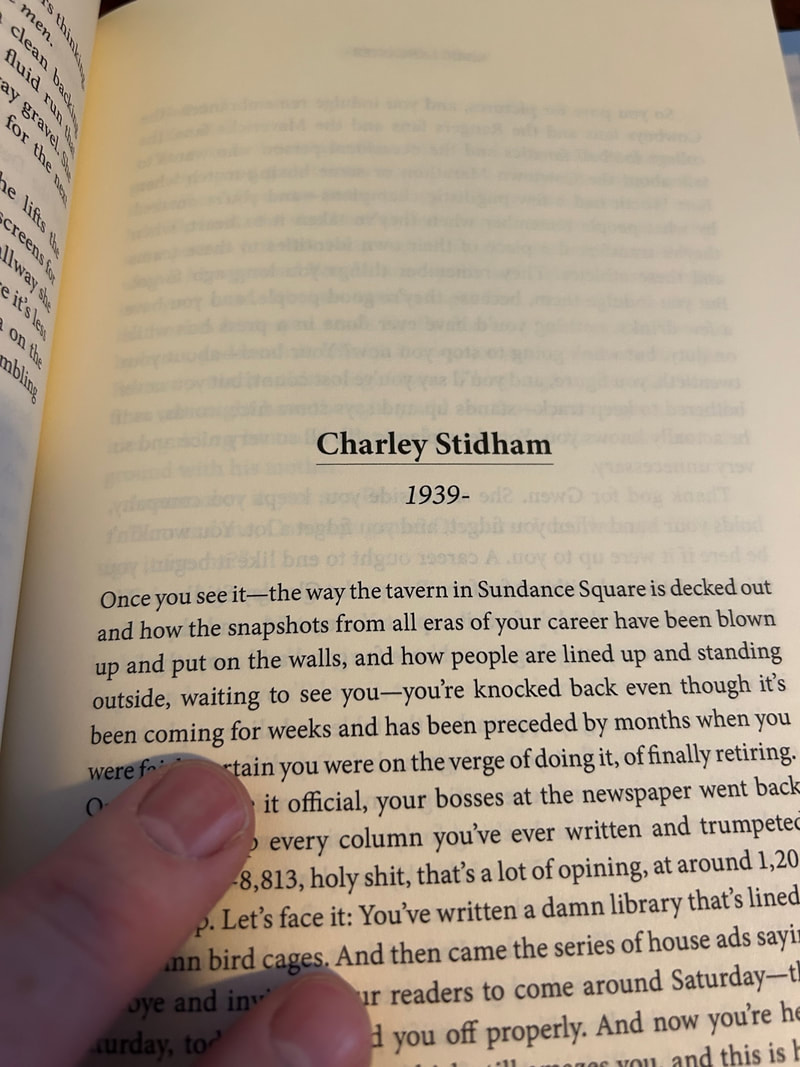
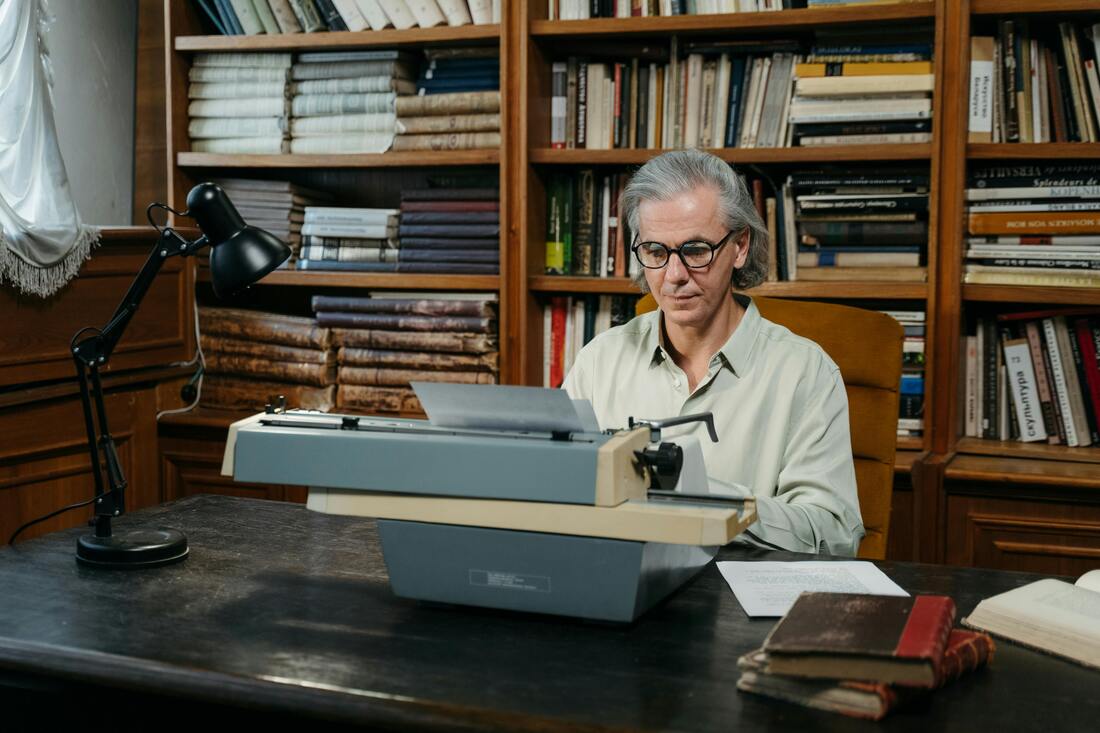
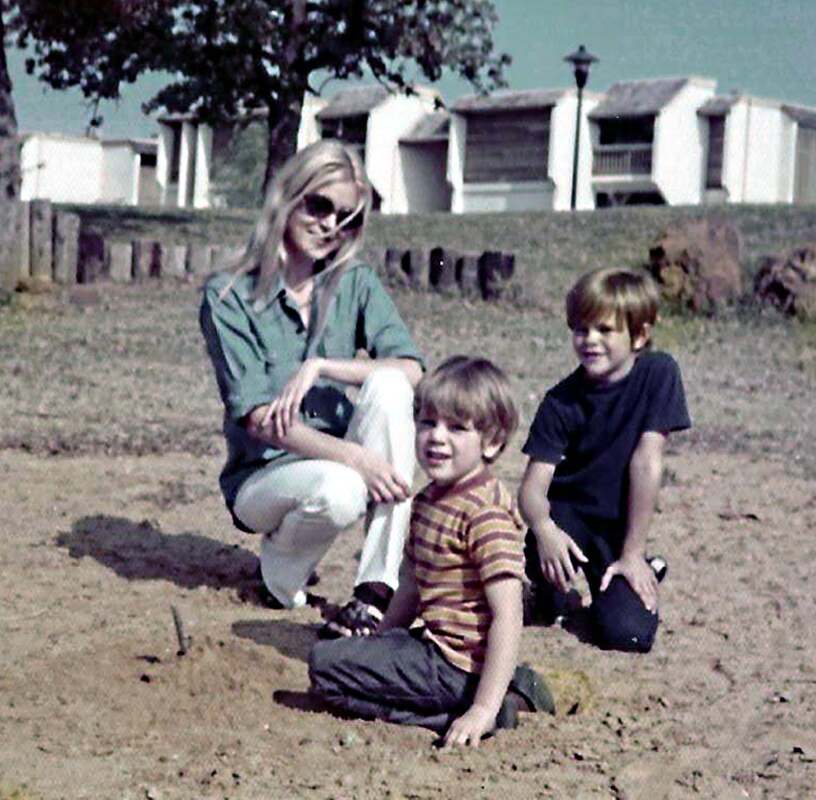
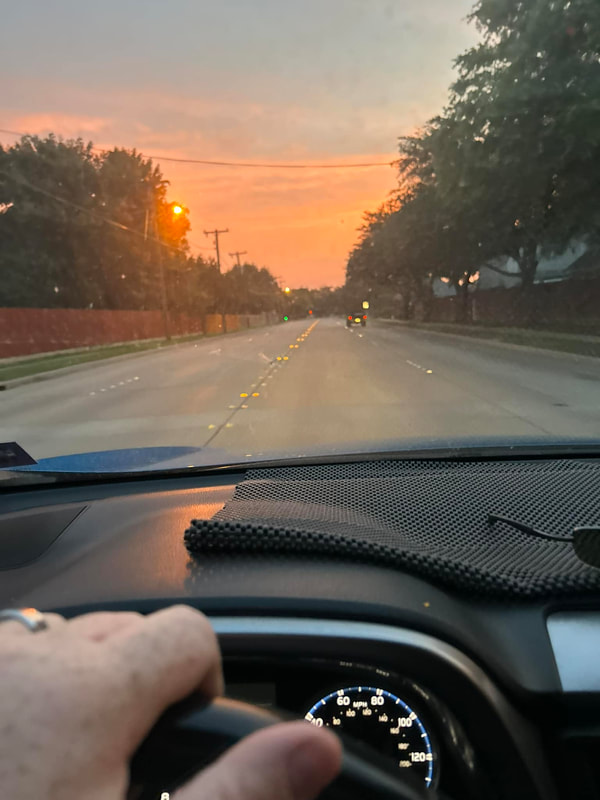
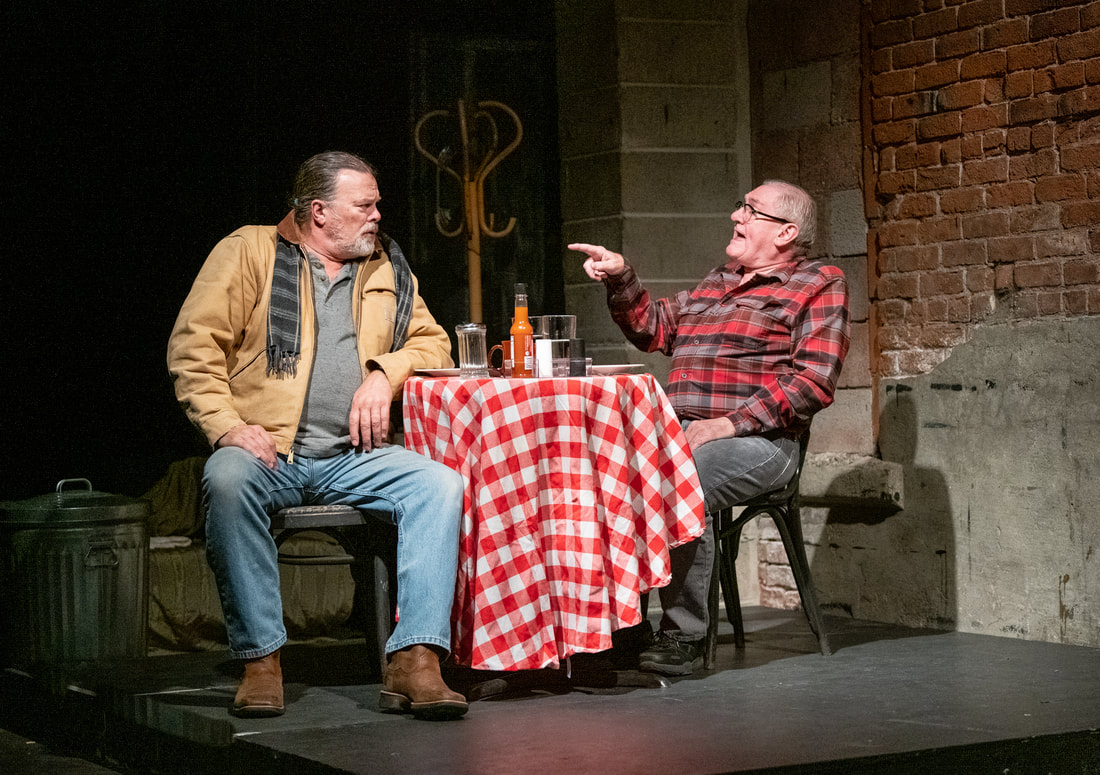
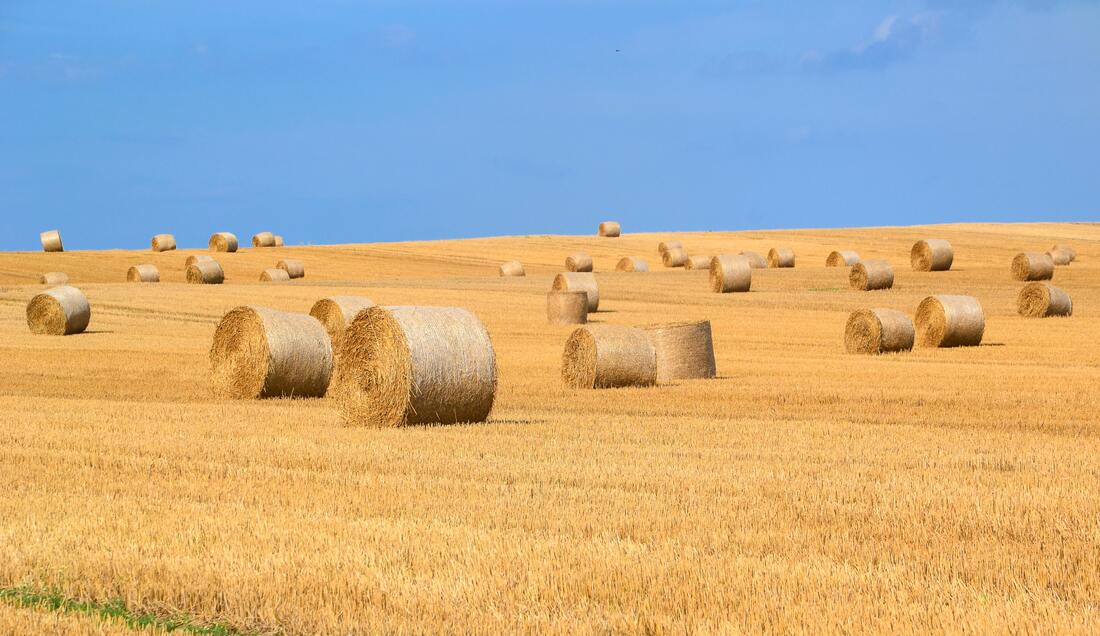
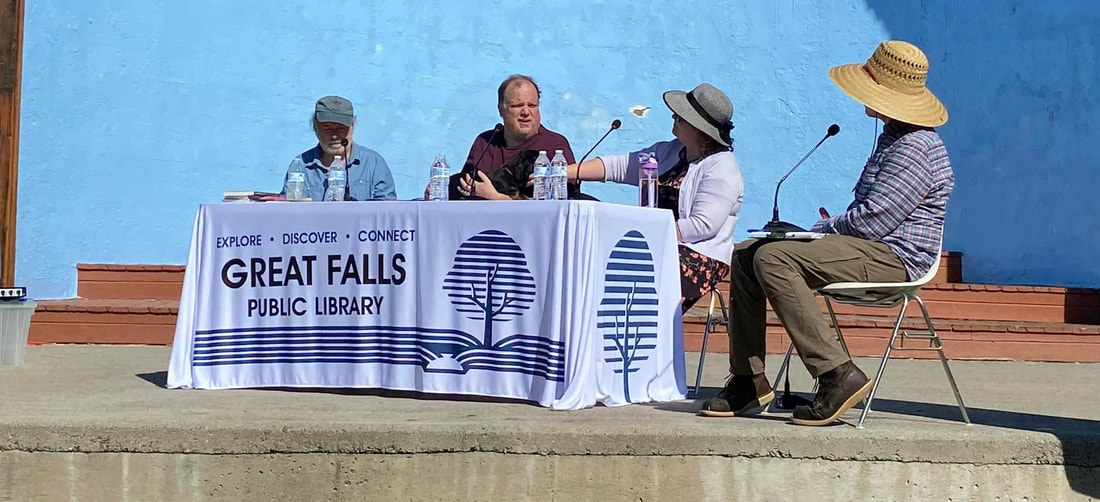
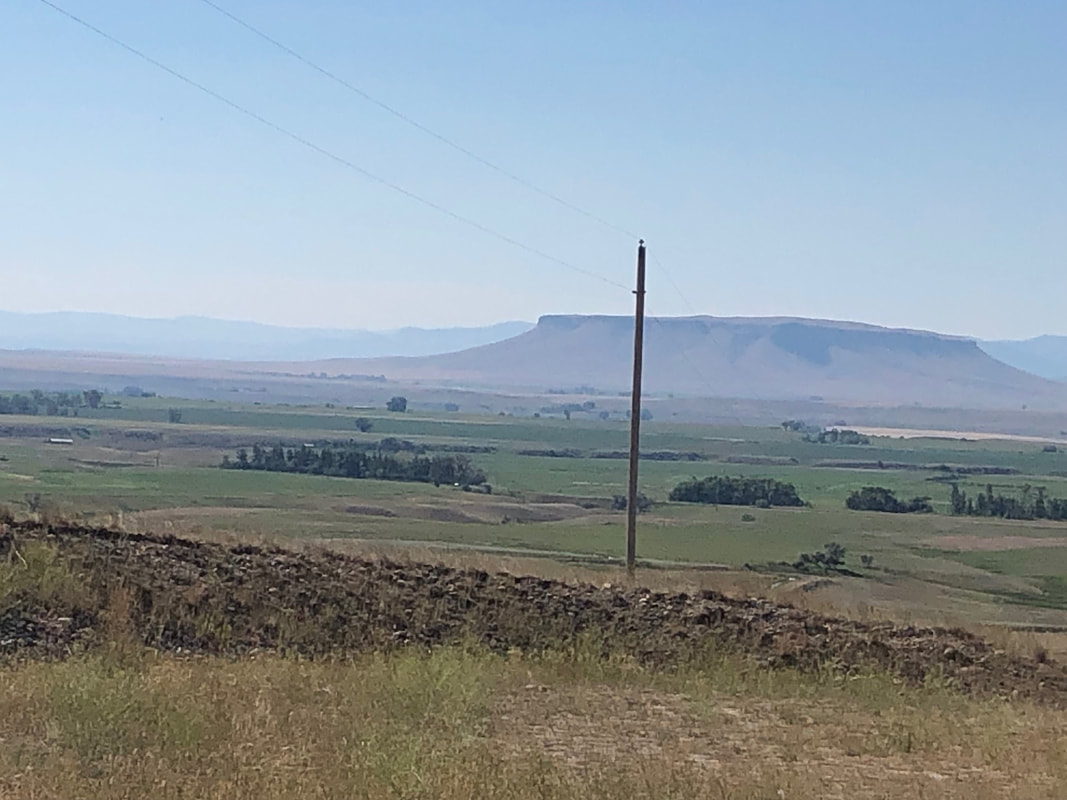
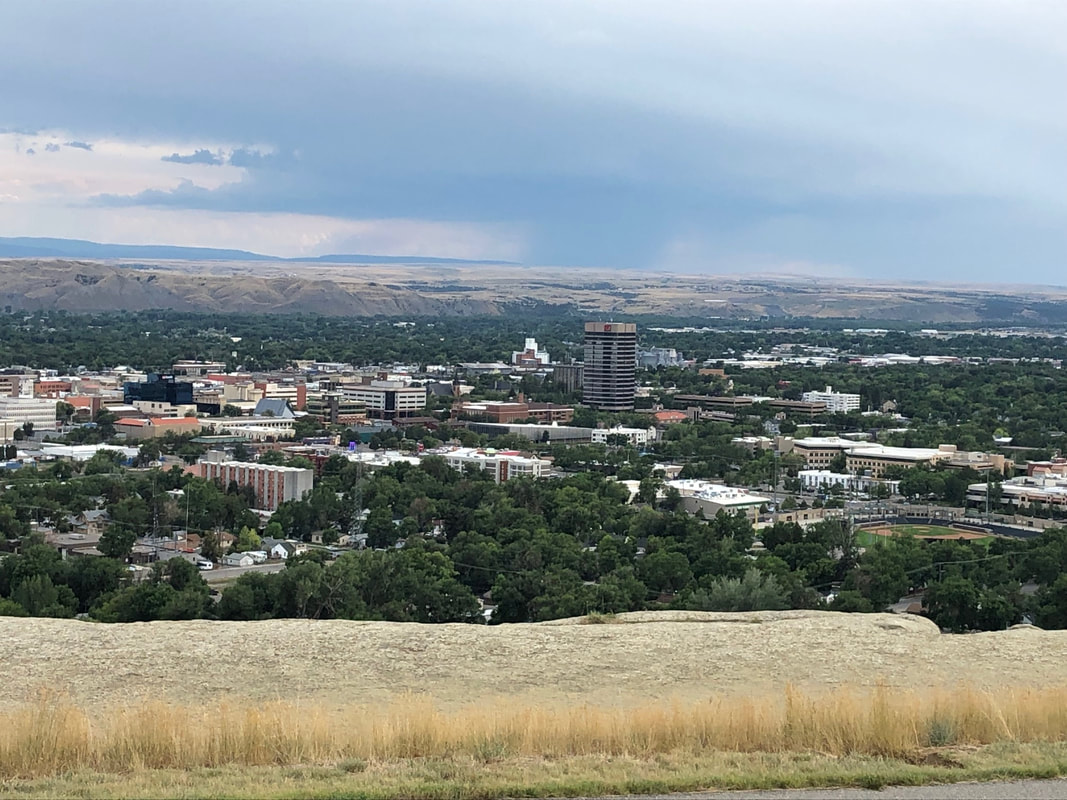
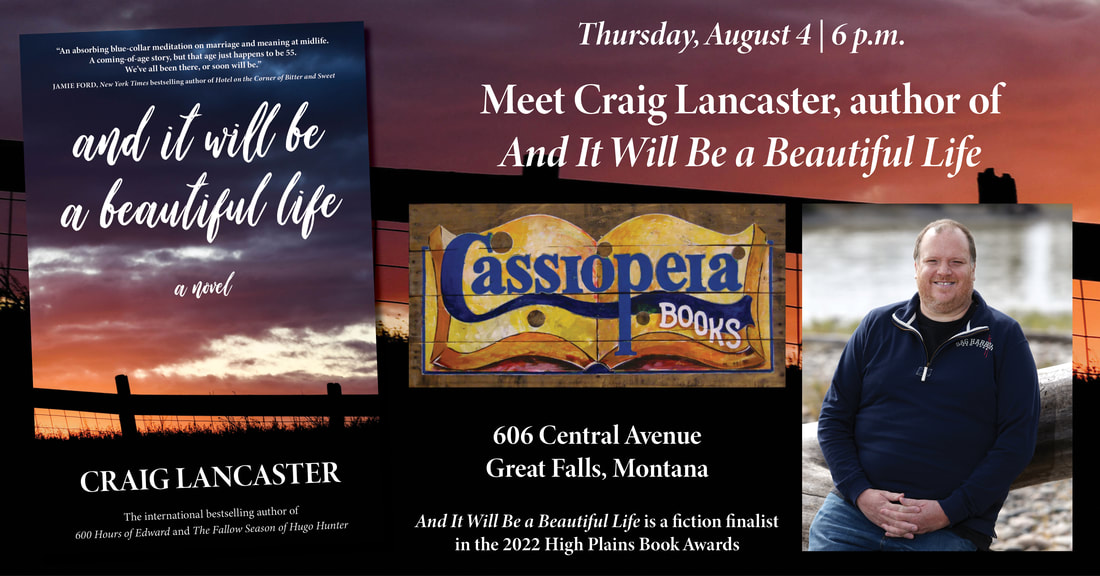
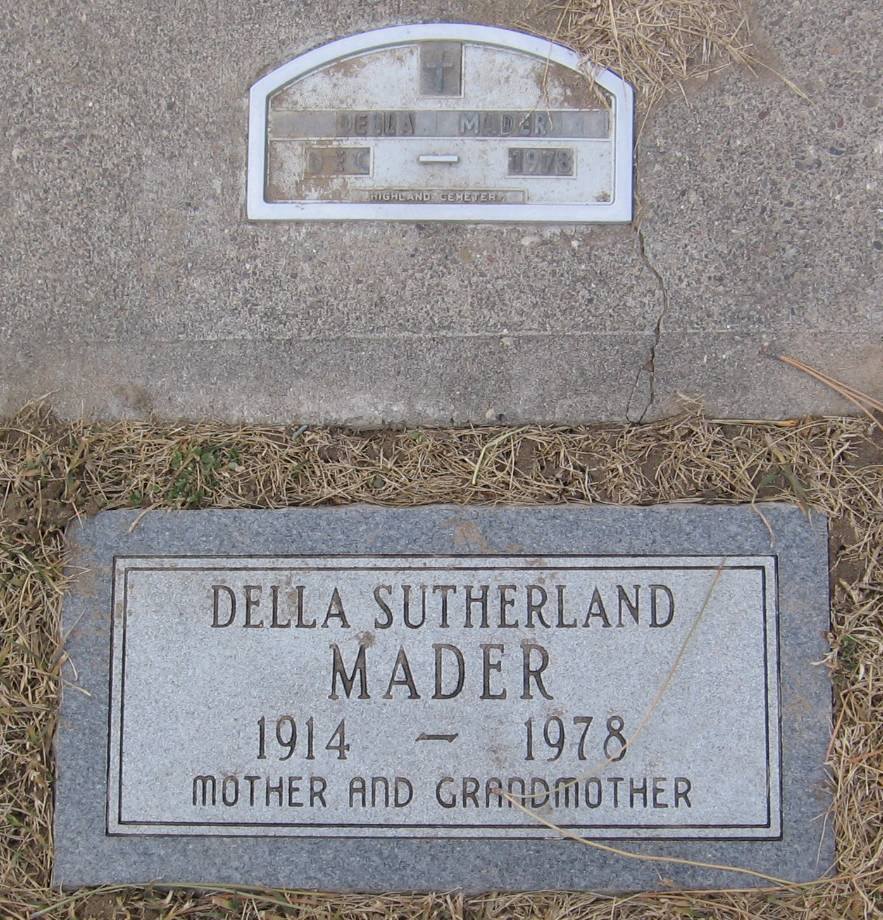
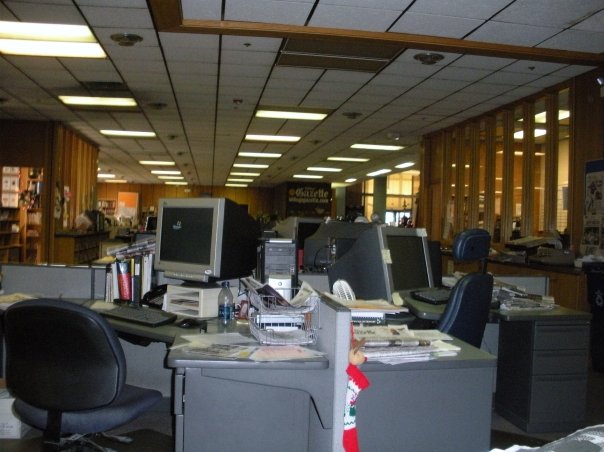
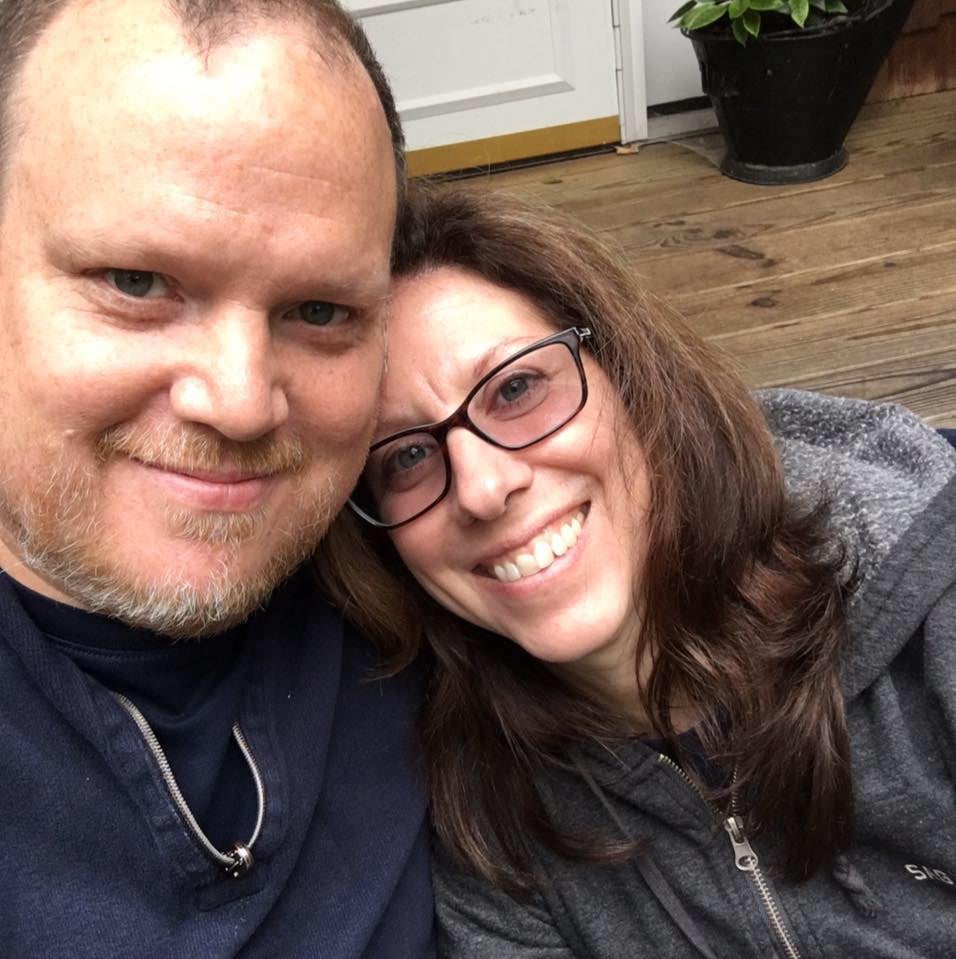
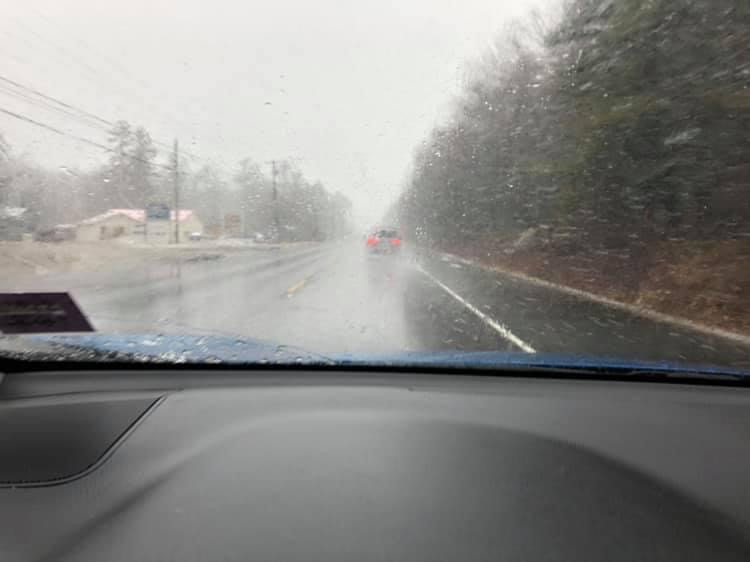
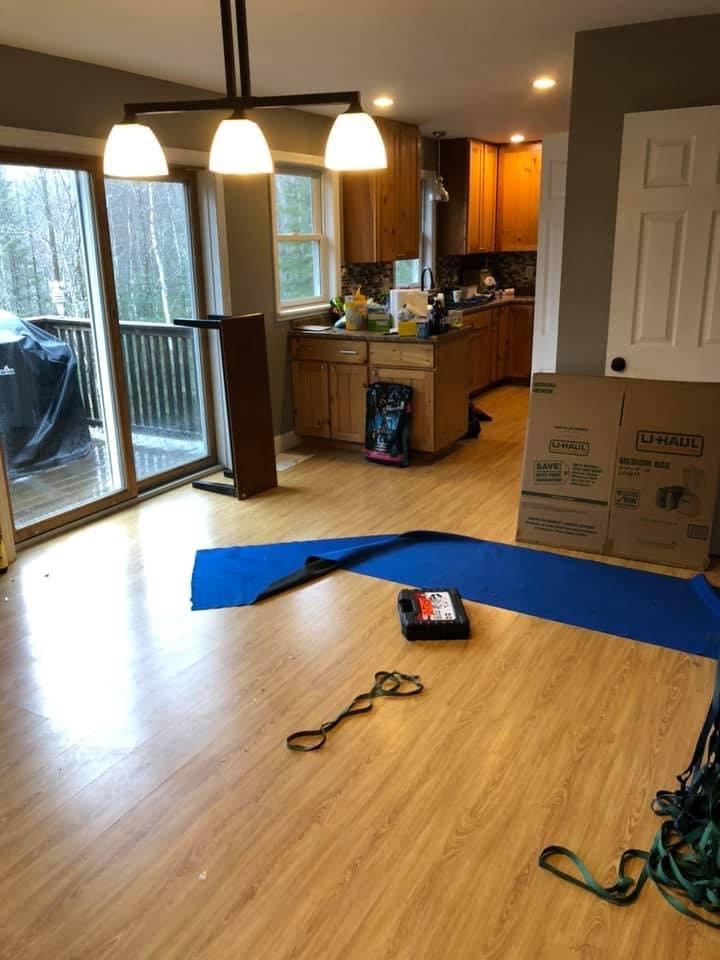
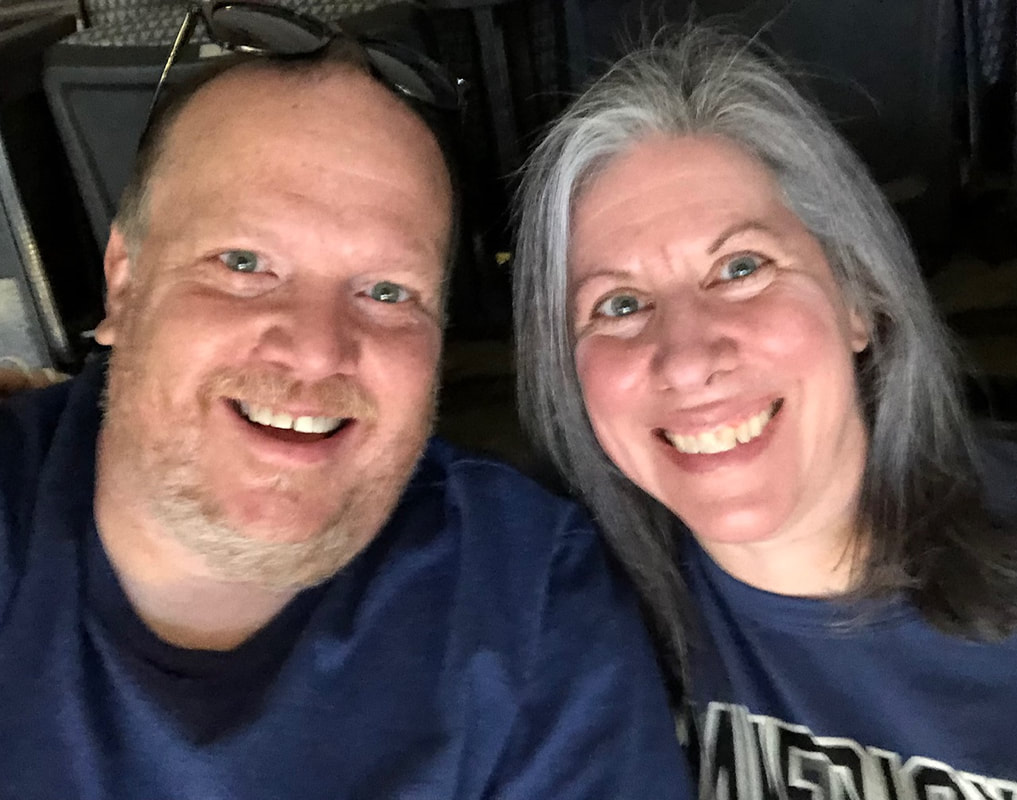
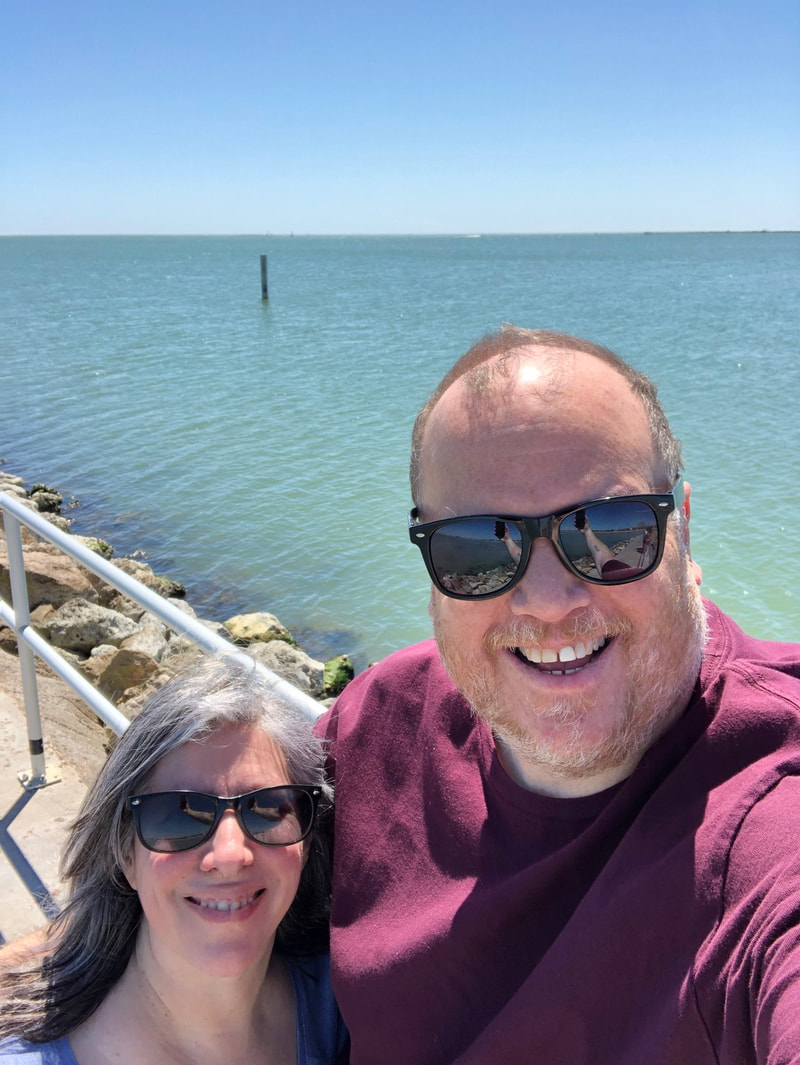
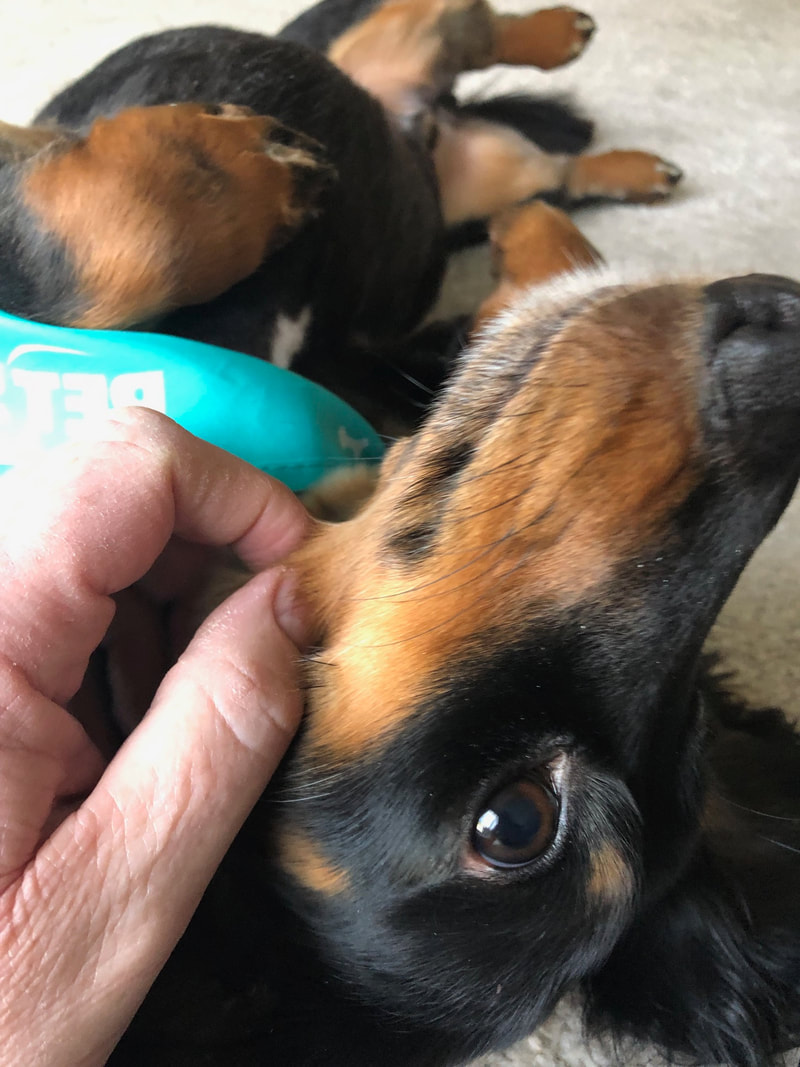

 RSS Feed
RSS Feed